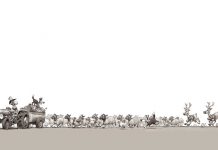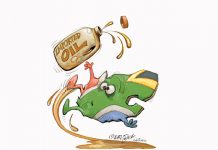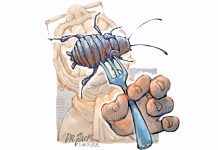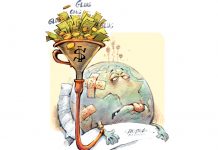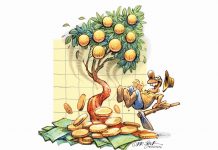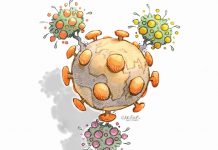Southern Africa’s hunger hotspots
The Food and Agriculture Organization of the United Nations and the World Food Programme’s Hunger Hotspots report highlights the countries most at risk of increased food insecurity from August to November 2021. In Southern African, these include Mozambique, Madagascar, Angola and the DRC.
Looking forward to 2022
The past year has brought with it many challenges, including a significant increase in the prices of agricultural inputs. However, farmers have shown that there is much strength in unity, and they have managed to push through these difficulties to end 2021 on a high, as these agricultural leaders show.
Can SA grow its agro-processing sector?
One of the topics featured in the Bureau for Food and Agricultural Policy’s latest agricultural outlook report concerns the prospects for growing South Africa’s agro-processing sector. Using vegetable oil as an example, the report presents some of the challenges that stand in the way of the country developing a strategy towards replacing imported products with locally manufactured alternatives.
Droughts: a global crisis that hits the poorest
According to a new report by the United Nations Office for Disaster Risk Reduction, drought constitutes a global crisis that risks becoming a ‘pandemic’, causing widespread starvation if countries do not take urgent action on water and land management.
Helping farmers in Africa to mechanise
There is sufficient evidence that mechanisation of farming can improve production, reduce losses and help develop rural communities. In this report, the Food and Agriculture Organization of the United Nations suggests a number of models, such as mechanisation hire services, that can help rural farmers mechanise production without requiring them to invest large sums of capital.
The economic and ecosystem impacts of GM maize in SA
A recent study by Kristiina Ala-Kokko, a researcher at the University of Arkansas in the US, and felllow researchers has shown that, despite the controversy that still surrounds the use of genetically modified (GM) crops, the production of GM maize has resulted in many benefits for South African farmers and consumers.
The possible dangers of eating insects
The farming and processing of edible insects for human and animal consumption appears to be gaining in popularity. However, according to the Food and Agriculture Organization of the United Nations, there are risks to eating insects that have not been farmed with the correct biosecurity measures in place, and these risks are potentially dangerous to human and animal health.
How COVID-19 changed agricultural policy
As governments implemented containment measures to slow the spread of COVID-19 in early 2020, they also introduced ways of limiting the effects of the virus and related lockdowns on agricultural supply chains. A recent report by the Organisation for Economic Co-operation and Development tracked these initiatives, including the South African government’s response.
How much will it cost to save the planet?
The ongoing loss of natural spaces, including forests, has become a systemic risk for the global economy, warns the report, ‘State of Financing for Nature: Tripling investments in nature-based solutions by 2030’, by the United Nations Environment Programme.
How Africa can benefit from a strong agri sector
A report by the Food and Agriculture Organization of the United Nations argues that African governments need to invest more in their agriculture sectors in order to promote growth, create jobs and reduce poverty.
Rural safety: perception vs reality
Finding effective and lasting solutions to rural crime will require a collective response from individuals, community organisations, government structures and the police, writes Uys van der Westhuijzen, chairperson of the Agri SA Centre of Excellence for Rural Safety. He cautions, however, that no response can ever be truly effective if it is not supported by an effective criminal justice system.
COVID-19 and the rise of organic farming
According to the 2021 statistics yearbook ‘The World of Organic Agriculture’, which presents the latest statistics and emerging trends in organic farming from 187 countries around the world, organic farmland increased by 1,1 million hectares in 2019, and organic retail sales continued to grow.


